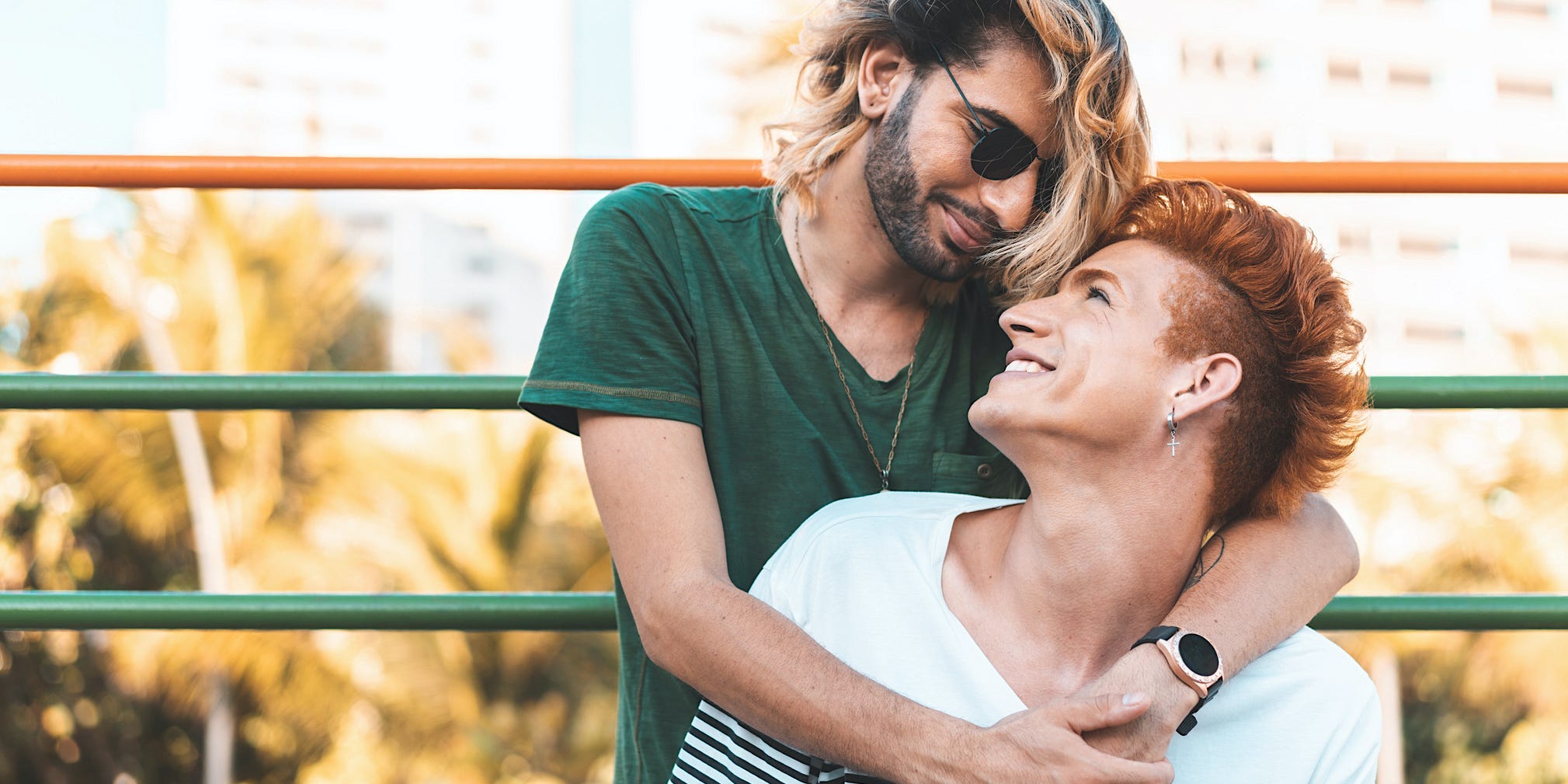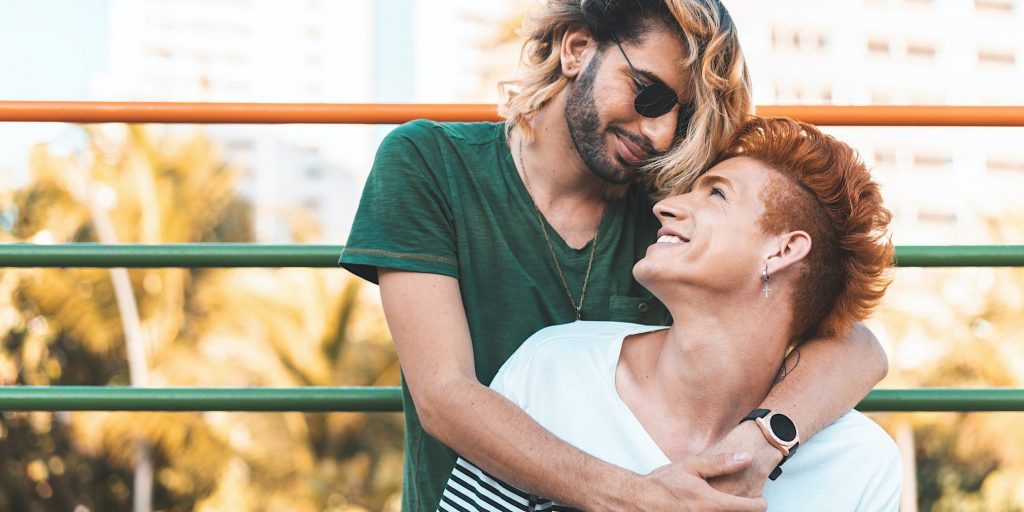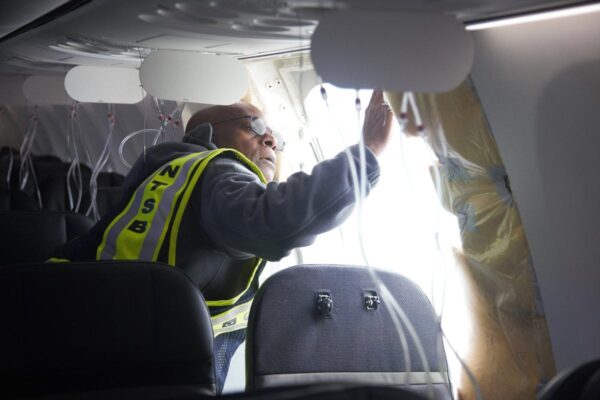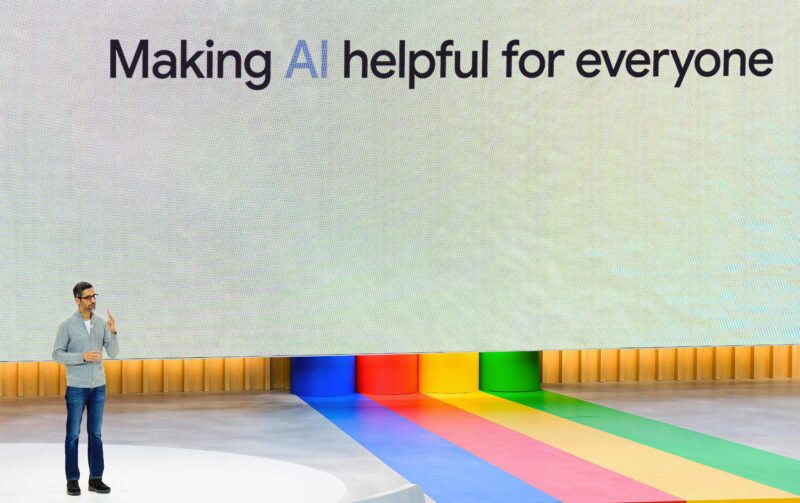
Pollyana Ventura/Getty Images
- Identifying as pansexual means you form an attraction to people regardless of their gender.
- Meanwhile, bisexual means forming a sexual or romantic attraction to people of more than one gender.
- Whether or not someone identifies as pansexual, bisexual, or both comes down to personal preference.
- Visit Insider's Health Reference library for more advice.
From 2017 to 2020, the percentage of US adults that identified as LGBTQ increased from 4.5% to 5.6%.
With a growing number of people questioning and exploring their sexuality or gender, LGBTQ is quickly becoming more widely defined.
As the conversation expands, terminology like "pansexual" has popped up in recent years, leaving people wondering: "What exactly is the difference between bisexuality and pansexuality?"
Generally, pansexuality refers to forming sexual or romantic attractions regardless of gender whereas bisexuality refers to forming sexual and romantic attractions to more than one gender.
What does pansexual mean?
The definition of pansexuality, often shortened to "pan," can be understood as an attraction to all genders across the gender spectrum. People who identify as pansexual can still find themselves attracted to one gender more than another, but do not limit their attraction based on gender.
Put another way: "The pan in pansexual means 'all.' Your attraction and connection is not limited to or being defined by gender itself. Instead, you're attracted to all genders, all individuals," says Nick Alder, PhD, a non-binary psychologist who specializes in queer issues.
However, not everyone who identifies as pansexual will describe their sexuality in the same way. In fact, a small 2018 study of people who identify as bisexual, pansexual, and queer found people who identified as pan explained their sexuality in different ways:
- "I just like people. I'm more attracted to personalities rather than genders, but I'm still not 100% sure about labeling myself."
- "I like guys and dudes and androgynous people."
- "Interested in people over people's bits. Gender is amongst the many variables that literally do not enter the equation of 'to date or not to date.'"
- "I'm mostly attracted to females or feminine/androgynous people."
Additionally, since pansexuality does not take gender into account when considering attraction, trans, gender fluid, and nonbinary people may prefer to identify as pansexual to opt-out of gender-oriented conversations.
For example, if a nonbinary person is attracted to someone else, they may label themselves pansexual as a means of reaffirming their gender identity. Yet, this does not mean someone who is trans or non-binary cannot identify as bisexual.
What does bisexual mean?
Bisexuality is a broad and inclusive term that describes physical attraction, romantic attraction, or sexual behavior that is not limited to one sex.
A common misconception about bisexuality is that it means being attracted to only male or female-bodied people. However, that's not always the case.
"In the past, it was commonly defined as sexual attraction to both men and women; however, as people's conceptualization of gender has broadened, many now define bisexuality in ways that aren't rooted in a gender binary," says Justin Lehmiller, a Kinsey Institute research fellow and host of the Sex and Psychology Podcast.
Therefore, someone who is bisexual may also be attracted to people who identify as transgender, nonbinary, or other people outside the cisgender spectrum, Lehmiller says.
"Gender is an internal sense of who you are and who you are as a person. Sexuality as an extension of gender could be related to who we are attracted to based on the sex we are assigned at birth or be related to gender expression,." says Alder. For example, "someone who is nonbinary can also identify as bisexual because those are two different identities."
What is the difference between pansexual and bisexual?
There is no straightforward difference between pansexuality and bisexuality, since it all comes down to individual preference and however you feel most comfortable labeling or not labeling yourself, says Alder.
Ultimately, understanding which identity you align with is deciding which definition best describes you. Nothing is set in stone, but if you find yourself agreeing with phrases such as "I am attracted to a person not a gender" you could consider yourself pan. On the other hand, if you feel "I can be attracted to people of any gender" suits you, you could consider yourself bisexual.
It is also possible to identify as both. For example, a participant from the same 2018 study mentioned earlier described their sexuality as, "I am bi and queer and pansexual and fluid, all the time, all at once. For the sake of brevity, I usually say either bi or queer."
Misconceptions about pansexuality and bisexuality
Despite aligning on many of the same issues, some people consider bisexuality to be transphobic due to the misunderstanding that bisexuality means being solely attracted to cisgender individuals.
"I've heard some pansexual people accuse bisexual persons of being transphobic because they view bisexuality as rooted in a gender binary," says Lehmiller. "However, not everyone sees bisexuality this way. I think tensions tend to arise when people make assumptions about other people based on their sexual identity label without understanding what that label means to the individual."
Additionally, attraction to all genders doesn't mean every person, a stigma furthered by some heterosexual people assuming that queer people are attracted to them regardless of their sexual orientation.
Pansexuality also does not equate to equal attraction to all genders. The assumption both bisexuality and pansexuality may be attracted to anyone at all times is a misconception rooted in biphobia and homophobia.
Insider's takeaway
Ultimately, labels are up to individual preferences. Hopefully, no matter what your preference, the LGBTQ+ community loves and supports your journey with peace, love, and understanding.
If you or someone you love is questioning their sexuality, and looking for someone to talk to, you can call the LGBT National Hotline at 1-888-843-4564 or find additional sources here.










